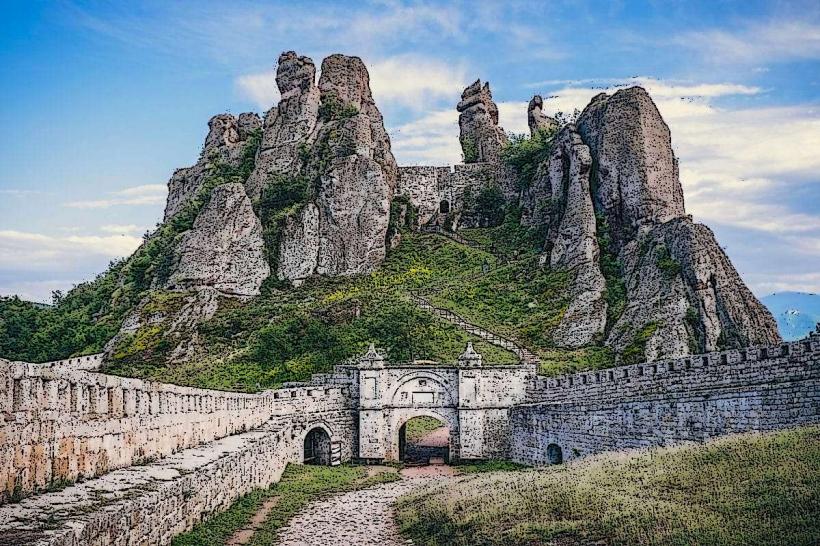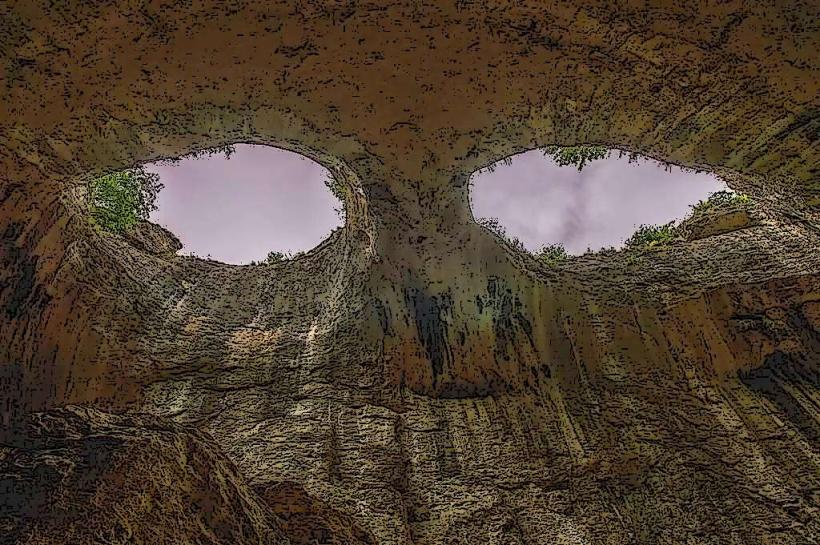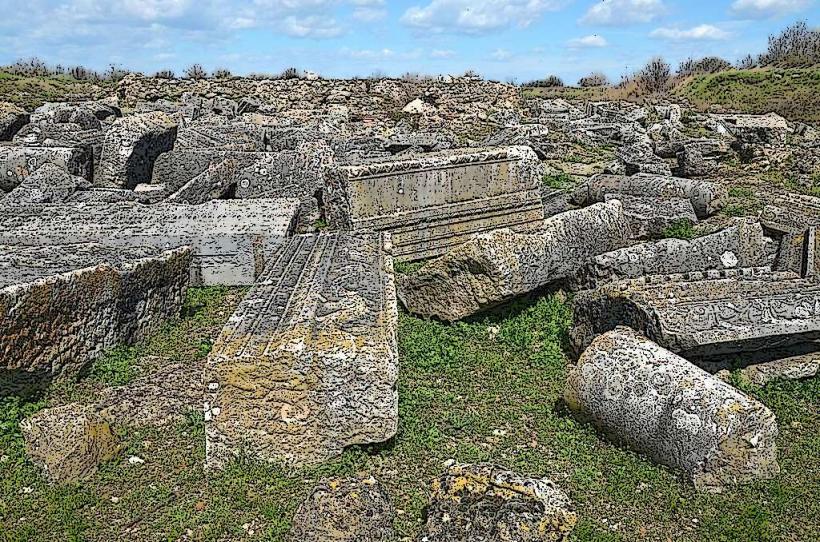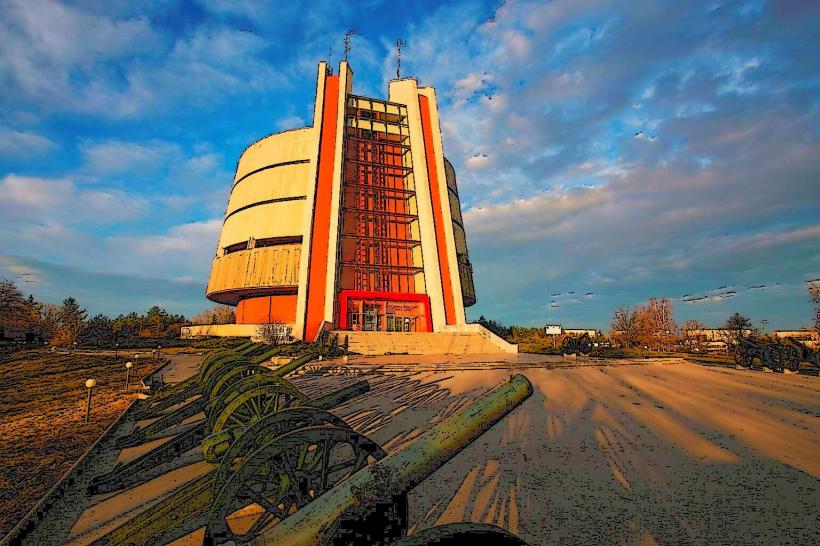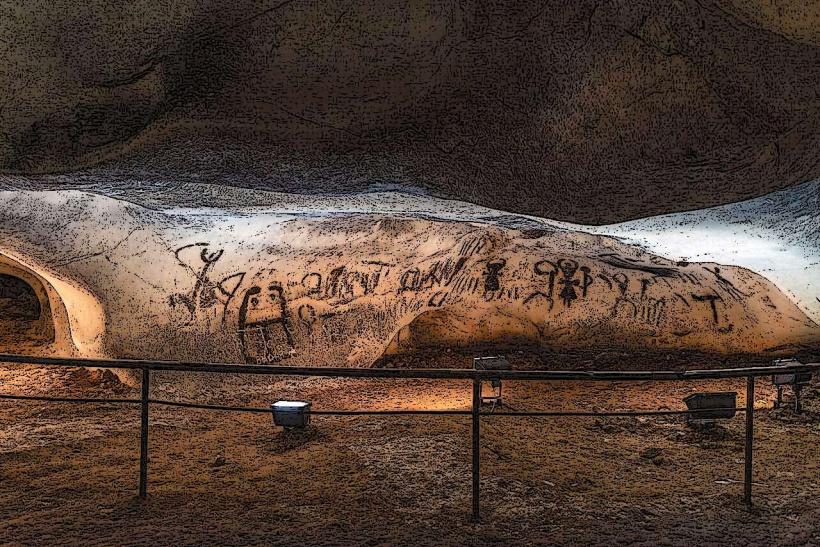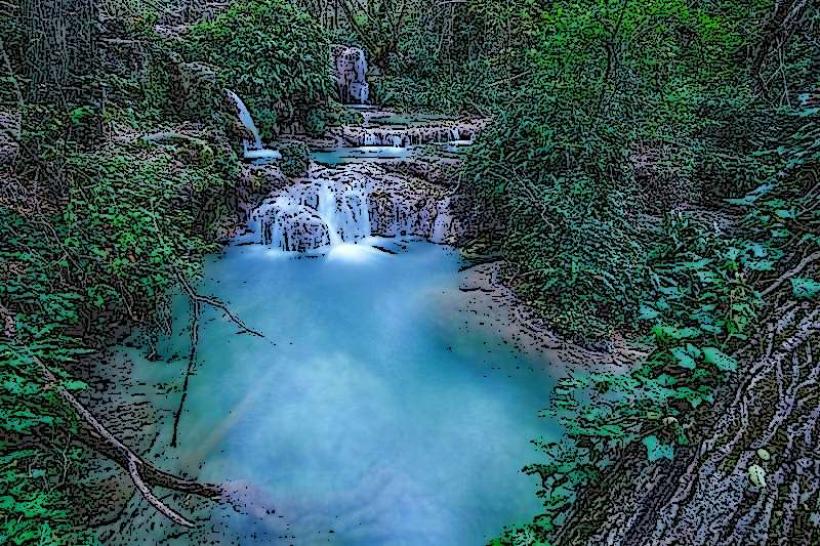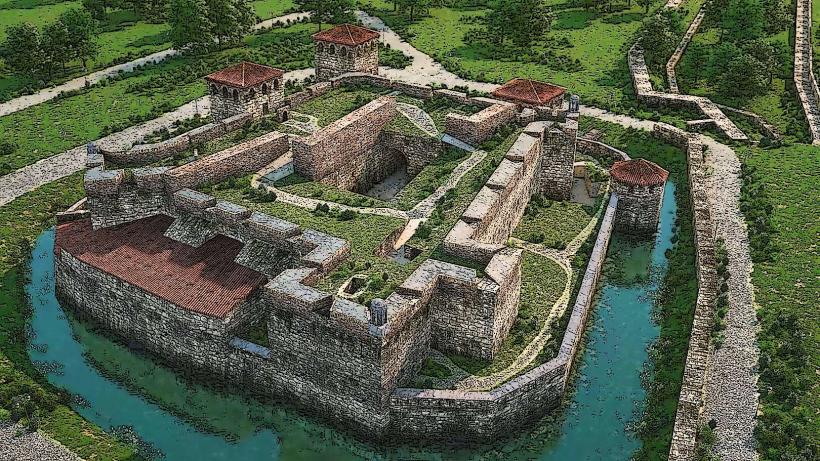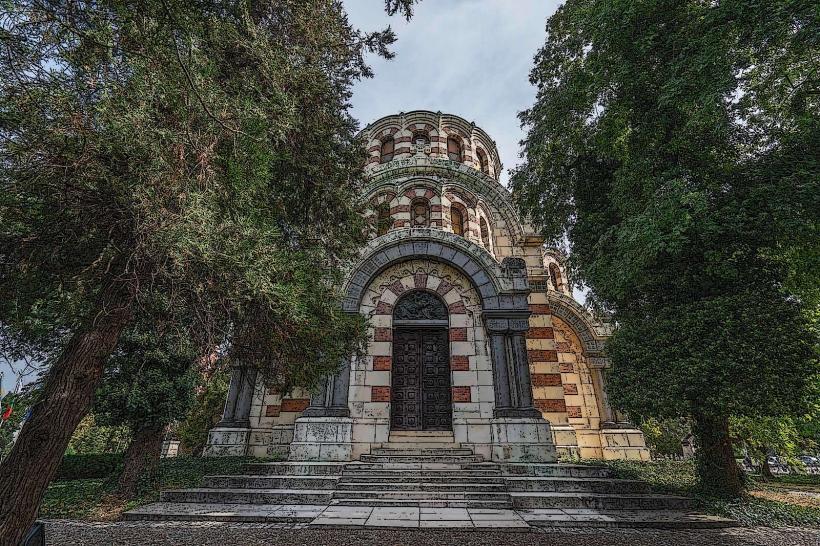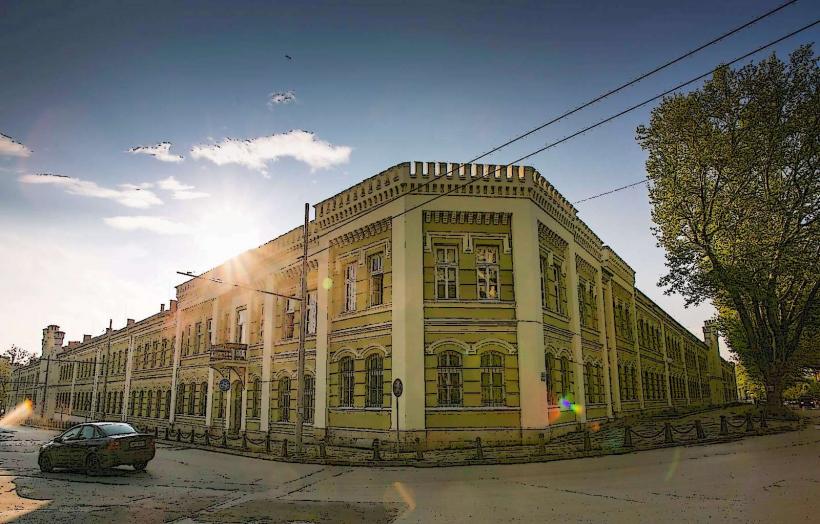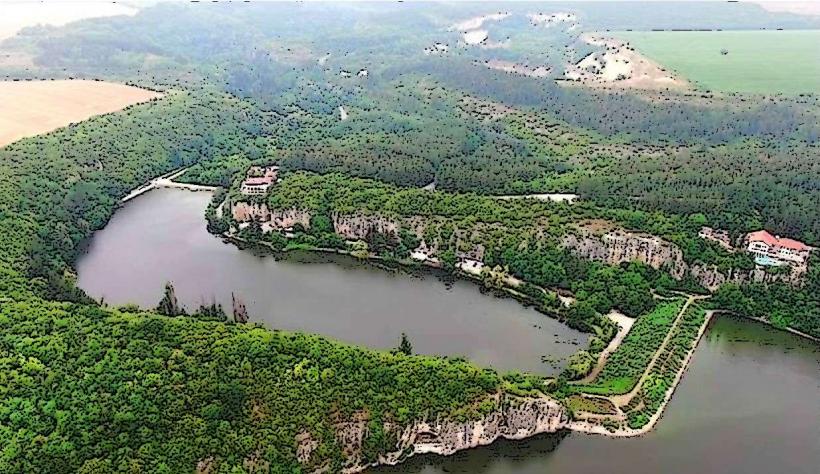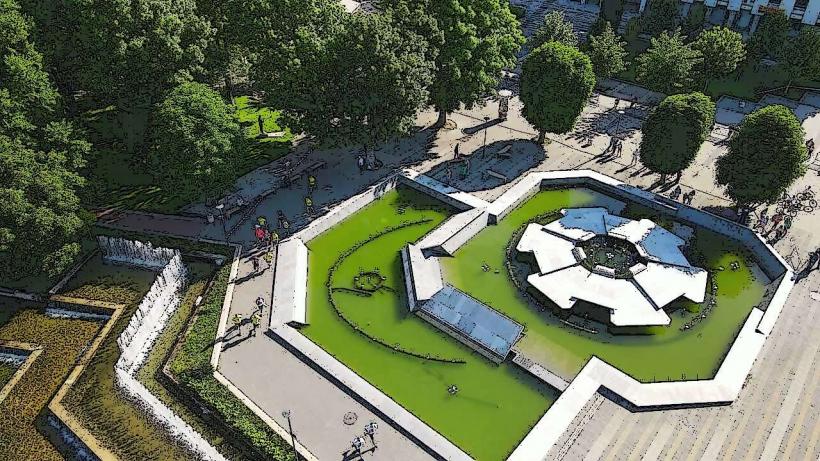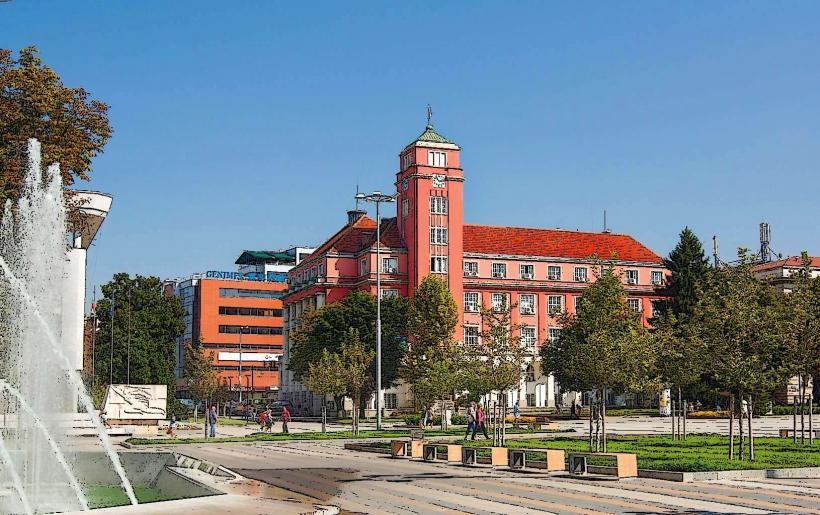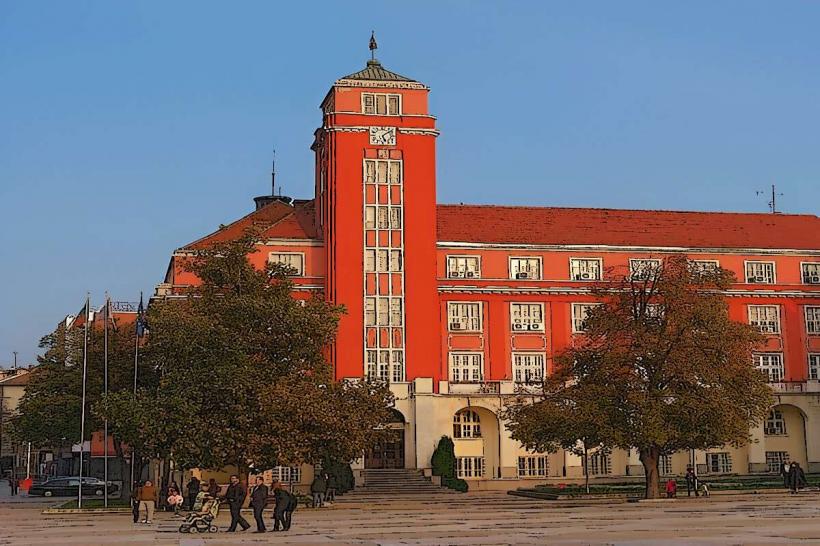Information
Landmark: Belogradchik FortressCity: Pleven
Country: Bulgaria
Continent: Europe
Belogradchik Fortress, Pleven, Bulgaria, Europe
The Fortress of Belogradchik, also known as Belogradchik Kale, is one of Bulgaria's most iconic and well-preserved historical fortresses. Nestled among the striking Belogradchik Rocks in northwestern Bulgaria, this fortress combines natural and man-made defenses, creating a unique and picturesque structure that spans centuries of history.
Historical Overview
Ancient and Roman Periods
- The earliest evidence of a defensive structure at the site dates to the Roman Empire (1st–4th centuries CE).
- Romans constructed the initial fortress to protect strategic routes and ensure control over the local population.
- The natural rock formations, towering up to 200 meters, provided a ready-made defense, reducing the need for extensive construction.
- During the Roman period, the fortress served as a military post and was connected to the larger Roman road network in the region.
Byzantine Period
- After the fall of the Western Roman Empire, the fortress remained in use during the Byzantine Empire.
- It was reinforced as part of the Byzantine strategy to maintain control over the Balkans amid invasions by Slavs and other tribes.
Medieval Bulgarian Period
- The fortress gained prominence during the Second Bulgarian Empire (1185–1396 CE), particularly under Tsar Ivan Sratsimir, who ruled the region from nearby Vidin.
- The structure was expanded, with new walls and towers built to enhance its defensive capabilities.
- It served as a military stronghold and a refuge during the Ottoman invasions in the late 14th century.
Ottoman Period
- After the Ottoman conquest of Bulgaria, the fortress was integrated into the Ottoman defensive system.
- Significant modifications were made in the 19th century, including the addition of cannon emplacements and modernized walls to adapt to changing military technologies.
- The fortress played a role in suppressing uprisings, such as the Belogradchik Uprising of 1850, during the Bulgarian struggle for independence.
Architectural Features
The Fortress of Belogradchik is renowned for its integration with the surrounding natural rock formations, which serve as a natural defense system. Key features include:
Natural Rock Defenses:
- The fortress incorporates massive sandstone and limestone formations, which act as impenetrable walls on three sides.
- The rocks' unique shapes and colors create a dramatic backdrop, blending natural beauty with human engineering.
Fortified Walls and Bastions:
- The walls, built from locally quarried stone, are up to 2 meters thick and 12 meters high in places.
- Bastions and watchtowers provide strategic vantage points for monitoring the surrounding area.
Three Main Courtyards:
- The fortress is divided into three separate courtyards, connected by gates and staircases.
- Each courtyard served a specific function, from military operations to storage.
Gates and Entryways:
- The main gate is reinforced with heavy iron and stonework, providing the primary access point.
Defensive Adaptations:
- Additions from the Ottoman period, such as cannon embrasures and gun loops, highlight the fortress’s evolving defensive strategies.
Cultural and Historical Significance
- The fortress reflects the historical transitions of the region, from Roman and Byzantine control to Bulgarian and Ottoman influence.
- It played a key role in regional defense and governance over the centuries.
Modern Legacy and Tourism
Tourist Destination:
- The Fortress of Belogradchik is a popular site for tourists, attracting visitors with its unique combination of natural beauty and historical significance.
- Visitors can explore the fortress, climb the rock formations, and enjoy panoramic views of the surrounding countryside.
Belogradchik Rocks:
- The fortress is part of the Belogradchik Rocks, a natural phenomenon featuring bizarrely shaped rock formations such as the Madonna, the Mushroom, and the Schoolgirl.
- The rocks have inspired legends and myths, adding to the site’s allure.
Cultural Events:
- The fortress hosts cultural events, including concerts, reenactments, and festivals, further enriching its appeal.
UNESCO Candidacy
- The Belogradchik Rocks and Fortress are on Bulgaria’s tentative list for UNESCO World Heritage status, underscoring their historical, cultural, and natural significance.
The Fortress of Belogradchik stands as a testament to the ingenuity of ancient and medieval builders, blending natural and human elements to create a site of enduring historical and cultural importance.

